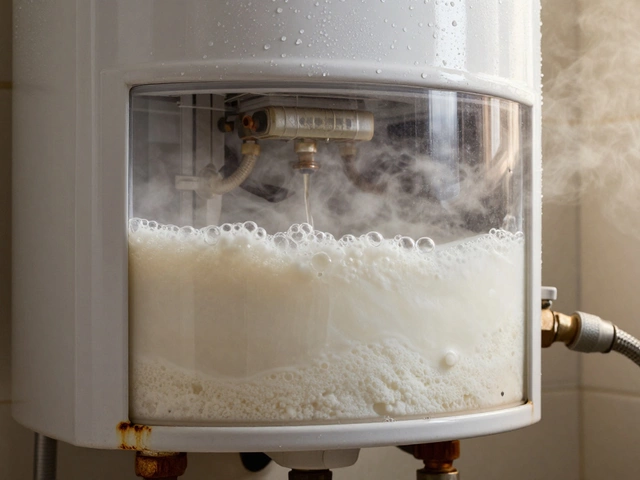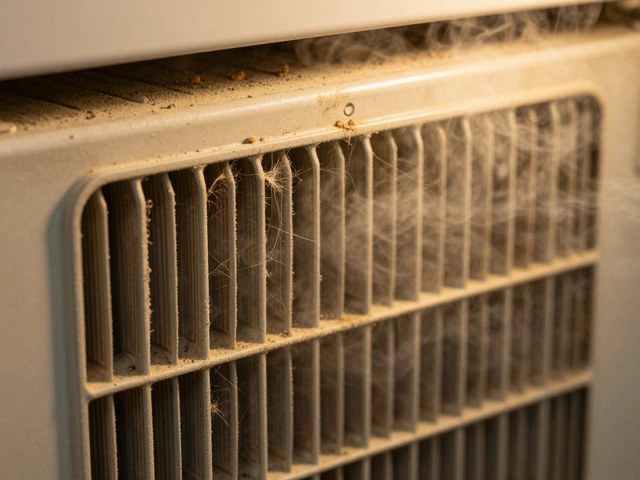Fridge Compressor Failure – What It Looks Like and How to Fix It
If your fridge is warm, makes strange noises, or just won’t run, the compressor might be the culprit. The compressor is the heart of the cooling system – it pumps refrigerant around the coils so food stays cold. When it quits, the whole fridge can become useless in a few hours. Below we’ll break down the most common signs, why compressors fail, and what you can do before calling a pro.
Tell‑tale Signs Your Compressor Is on the Fritz
Not every fridge problem points to the compressor, but these clues usually do:
- Nothing is cooling: The freezer and fridge are both warm, even though the unit is plugged in.
- Loud clicking or humming: The compressor tries to start, stalls, and repeats the cycle.
- Warm coils on the back: If the metal coils feel hot instead of cool, the compressor isn’t circulating refrigerant.
- Foul smells or frost buildup: A failing compressor can cause refrigerant leaks, leading to odd odors or ice forming inside.
If you notice two or more of these, it’s time to dig a little deeper.
Why Compressors Give Up
Compressors are tough, but they’re not indestructible. Common reasons they fail include:
- Age: Most compressors last 10‑15 years. Wear and tear on the motor and seals adds up.
- Dirty coils: Dusty condenser coils make the compressor work harder, overheating it.
- Electrical issues: Bad start relays, capacitors, or power surges can fry the compressor motor.
- Refrigerant leaks: Low refrigerant forces the compressor to run continuously, shortening its life.
Regular cleaning and checking the power supply can delay many of these problems.
DIY quick checks
Before you call a technician, try these safe steps:
- Unplug the fridge for 5 minutes, then plug it back in. Some compressors need a reset.
- Listen for the start‑up click. If you hear a click but no hum, the start relay might be dead.
- Inspect the back of the fridge. Remove any dust from the condenser coils with a brush or vacuum.
- Check the power cord and outlet. A loose plug can mimic compressor failure.
If nothing changes, the issue is likely internal and needs a trained eye.
When to call Weymouth Appliance Repair Services
Compressor work involves sealed refrigerant systems, which require certification to handle safely. Trying to DIY a refrigerant refill or compressor swap can be dangerous and illegal. Call us when you see any of the above signs and the quick checks didn’t help. Our technicians are G4‑certified, carry the right tools, and can diagnose the exact fault – whether it’s a bad relay, a leaky line, or a dead compressor.
We typically:
- Test the compressor’s electrical draw.
- Check for refrigerant leaks using UV dye.
- Replace start relays, capacitors, or the compressor itself if needed.
- Clean coils and verify proper airflow.
Our rates are transparent, and we’ll give you a clear cost before any work starts. Most compressor repairs in Weymouth run between £150‑£350, depending on part price and labor.
Keeping Your Compressor Happy
Preventive care is cheap compared with a full replacement. Here are three habits that extend compressor life:
- Clean the coils quarterly: A brush or low‑speed vacuum keeps the heat‑exchanger efficient.
- Don’t overload the fridge: Too many items block airflow and force the compressor to run longer.
- Check the door seals: Leaky seals let warm air in, making the compressor work overtime.
Follow these tips and you’ll catch problems early, saving time and money.
Whether you’re dealing with a humming compressor that won’t start or a fridge that’s just warm, Weymouth Appliance Repair Services is ready to help. Give us a call, describe the symptoms, and we’ll schedule a quick visit. Fast, reliable, and affordable – that’s our promise.
What Usually Fails in a Fridge? Common Breakdowns and How to Spot Them
- Alden Wilder
- Dec 22 2025
- 0 Comments
Most fridge failures are simple and cheap to fix. Learn the top 6 reasons your fridge isn't cooling-door seals, coils, fans, thermostats, defrost systems, and compressors-and how to fix them yourself.
View MoreKnow When Your Fridge Compressor is Toast
- Alden Wilder
- Apr 16 2025
- 0 Comments
Is your fridge acting up, and the idea of spoiled food starts haunting your dreams? Understanding when a fridge compressor bites the dust can save you a lot of hassle. This article covers the telltale signs and offers practical advice for troubleshooting and potential fixes. It's like having a handy fridge whisperer for when things go south.
View More





